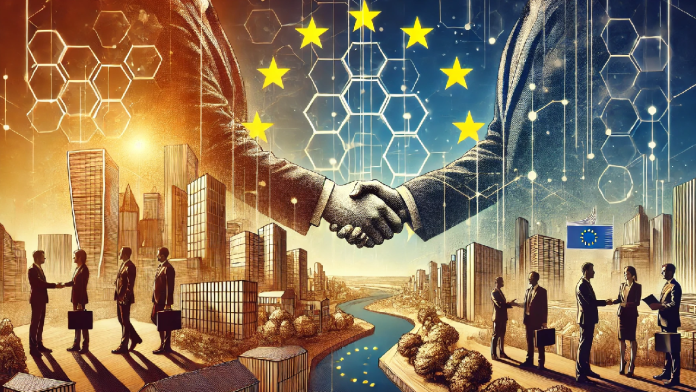Backpack Exchange, a cryptocurrency platform founded by former FTX and Alameda Research employees, has officially acquired FTX EU, the European arm of the defunct FTX exchange. The acquisition has been approved by the FTX bankruptcy court and the Cyprus Securities and Exchange Commission (CySEC), signaling a strategic move for Backpack’s expansion across the European Union. This development allows Backpack to offer a range of crypto derivative services, including perpetual futures, to users throughout the EU.
The acquisition comes with a significant responsibility: the distribution of funds to former FTX EU customers. Backpack EU, the newly established European entity, will oversee this process under the court-approved bankruptcy claims plan. According to Backpack CEO Armani Ferrante, this step is critical for rebuilding trust in the crypto industry. Ferrante emphasized the importance of ensuring that funds are returned quickly and safely, as customer restitution remains a cornerstone of the company’s strategy.
FTX EU’s history has been a turbulent one. The entity, originally known as Digital Assets AG and based in Switzerland, was acquired by FTX in 2021 for $323 million. However, the collapse of FTX in late 2022 plunged its European arm into operational and legal uncertainty. After months of negotiation and interest from various firms, including Coinbase, FTX EU was ultimately sold back to its original founders for $32.7 million in February 2024. This sale paved the way for Backpack to step in and secure the acquisition.
Backpack plans to reactivate the operational license for FTX EU, with a relaunch set for the first quarter of 2025. The company has committed to providing updates on asset access and new user onboarding through its support channels, reflecting a transparent approach to rebuilding its customer base. This effort aligns with CySEC’s decision in November 2024 to extend the suspension of FTX EU’s services for another six months. While the suspension prevents the platform from offering services or advertising, it allows for the processing of transactions and the return of funds to existing clients—a function that Backpack EU is poised to handle effectively.
The acquisition marks a new chapter for Backpack, a company founded in 2022 by Solana developer Armani Ferrante. Initially funded with $20 million from FTX and Jump Crypto, Backpack faced significant challenges during FTX’s collapse, losing $14.5 million—88% of its operating funds. Despite these losses, the company has demonstrated resilience, leveraging its innovative team and strategic acquisitions to rebuild its presence in the crypto market.
Backpack’s co-founder, Tristan Yver, brings additional expertise to the table, having worked at FTX for two years before leaving in May 2022. His industry experience has been instrumental in shaping Backpack’s strategy as the company navigates the complexities of the European crypto market. The reactivation of the FTX EU license and the relaunch of its services in 2025 are expected to position Backpack as a leading player in the region, offering advanced trading solutions and a renewed focus on customer satisfaction.
The European crypto market presents a mix of challenges and opportunities. Regulatory compliance, particularly under CySEC’s oversight, will be crucial for Backpack’s success. However, the acquisition of FTX EU provides a competitive advantage, granting access to an established user base and regulatory approval. By prioritizing customer restitution and delivering innovative services, Backpack aims to distinguish itself as a trusted name in the market.
This acquisition represents more than just business expansion; it is a testament to Backpack’s determination to recover from past setbacks and drive innovation in the crypto space. With its relaunch on the horizon, the company is poised to make a significant impact, capitalizing on the growing demand for secure and efficient trading platforms in the European Union.















